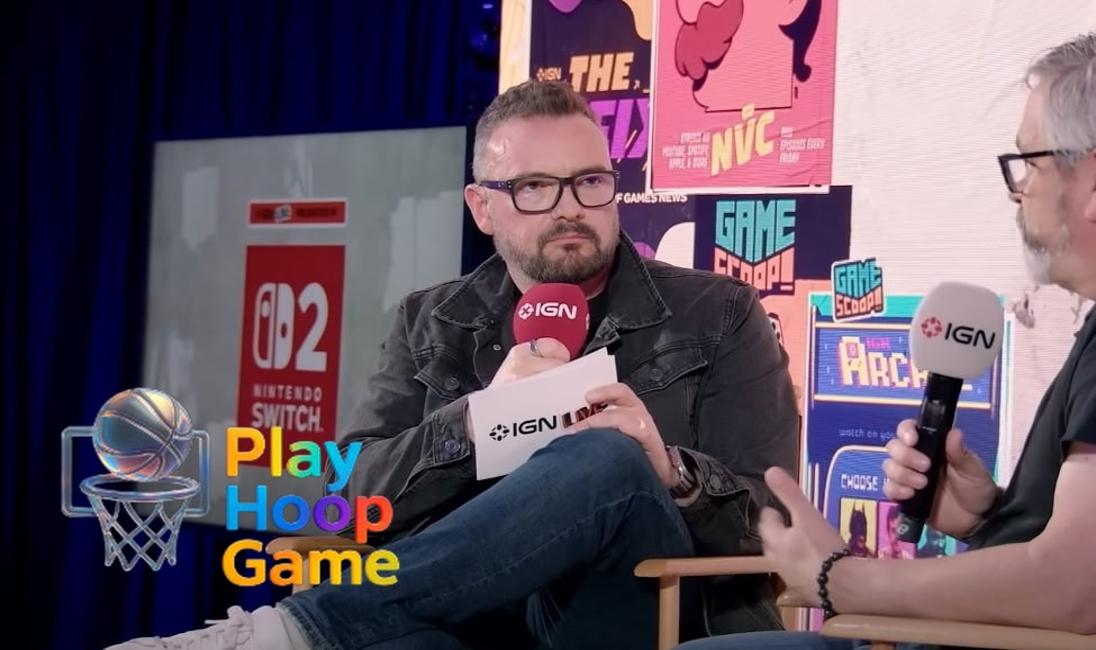There are certain names that just feel permanently welded to the brands they represent. For the longest time, in the chaotic, ever-shifting world of video game media, one of those names was Peer Schneider. And the brand was IGN.
So when the news dropped that he was leaving… well, it felt like reading that the sky had decided to be a slightly different shade of blue. It's not world-ending, but you notice. You can't not notice. Especially given the timing.
Because this isn't just a quiet retirement after a long, successful career. This is a departure that comes hot on the heels of yet another round of those soul-crushing layoffs that have become the grim background radiation of this industry. And that, right there, is the part that snags in your brain and refuses to let go.
The Captain and the Ship
I've always had this slightly clumsy analogy for leadership during tough times. A company is like a ship. The employees are the crew, doing the hard work of keeping the whole thing afloat—hoisting the sails, scrubbing the decks, navigating the treacherous waters of quarterly earnings and audience engagement.
The boss? They're the captain.
And when the seas get rough, when the parent company (in this case, the media conglomerate Ziff Davis) demands you lighten the load, the captain has to make some awful choices. People—good people, talented writers, video producers, the very soul of the operation—are told they're the excess weight. They're put in the lifeboats and sent away.
It's a brutal, ugly process. But for the captain to then announce, "Alright, crew's a bit smaller, ship's a bit lighter... and now I'm leaving, too!"—it just feels off. It’s a move that invites speculation, and not the fun kind. It’s the kind that’s tinged with frustration and a deep sense of unease about the state of things.
I’m not suggesting Schneider is a villain here. Far from it. Twenty-eight years at one company, rising from a founder of an affiliate site to the EVP and Chief Content Officer of the whole damn thing, is a monumental achievement in any industry, let alone one as volatile as digital media. But the optics are what they are. It raises questions that don't have easy answers.
So, Why is the IGN Boss Leaving After Latest Round Of Layoffs?
This is the big one, isn't it? The official line is that it was his decision, a chance to "pass the torch" and pursue something new. And maybe it's that simple. Maybe after nearly three decades, you just get tired. Tired of the pressure, tired of the corporate mandates, tired of having to be the one who makes those horrifying cuts.
I get that. I really do.
But you can't untangle his departure from the layoffs that preceded it. They are part of the same story. The industry is in a state of perpetual, painful contraction. Advertising revenue is a fickle beast, the pivot-to-video craze left a trail of bodies, and the audience's attention is more fragmented than ever. People are just as likely to get their gaming news from a TikToker or a YouTuber as they are from a legacy site. Others might spend their time on simpler, more direct fun like you'd find on a casual games portal or digging into hot new releases on a site like CrazyGames.
When you're at the top, the pressure from a massive parent company like Ziff Davis to maintain growth—or at least profitability—must be immense. Layoffs are the quickest, cruelest way to slash costs and appease the spreadsheet gods. But it’s a strategy of diminishing returns. You can only cut so much muscle before the body can no longer function.
And I have to wonder if this was a "one last time" situation. Perhaps the mandate came down for another round of cuts, and Schneider, having been through this cycle before, simply decided he didn't have it in him to steer the ship through yet another storm after having to throw more of his crew overboard. It’s a narrative that feels plausible, human even. A sort of "I can't do this anymore" moment.
It’s speculation, of course. We'll probably never know the full story that went down in those boardrooms. But the correlation is too strong to ignore. The departure feels less like a beginning for him and more like an endpoint for an entire strategy of managing these legacy media brands.
A Relic of a Different Internet
What really strikes me about Schneider’s tenure is how it represents a bridge to a completely different internet. He was there when IGN was just a scrappy N64 site. He saw the rise of dial-up, the dot-com bubble burst, the golden age of forums, the dawn of YouTube, the social media explosion, and now… whatever this chaotic, AI-inflected, algorithm-driven era is.
To survive, let alone thrive, through all of that is remarkable. It required constant adaptation, a willingness to chase trends, and a knack for building something big enough to weather the storms. IGN became a goliath. A household name, for better or worse. Sometimes bloated, sometimes brilliant, but always there.
Actually, that’s the key. Its "thereness." For millions of us who grew up with a controller in our hands, IGN was a constant. A place for reviews, E3 coverage, and maybe a quick game to pass the time. Schneider was the steward of that constant for a very, very long time.
His exit, tied so closely to layoffs, feels like a final, definitive severing of that old internet from the new. The new internet is leaner, meaner, and far less stable. It has less room for lifers and institutions. It's an era defined by contract work, venture capital whims, and the constant, gnawing threat of being made redundant by an algorithm or a corporate restructuring.
I’m not just lamenting change. Change is inevitable. But the nature of this change feels… extractive. It feels like the passion that built these places is being squeezed out to satisfy balance sheets, and the people who embodied that passion are either being shown the door or are choosing to walk out of it themselves. And that’s a tough pill to swallow for anyone who still believes in the power of dedicated, human-led games journalism.
Frequently Asked Questions About the IGN Shake-up
So wait, did Peer Schneider get fired?
The official word from both IGN's parent company, Ziff Davis, and Schneider himself is that he chose to step down. There's no public indication that he was forced out. However, in the corporate world, "choosing to leave" can mean a lot of things. Given the timing right after a significant round of layoffs, it's natural to speculate that the decision was influenced by the difficult state of the business and the tough choices that had to be made.
Why are so many games media sites having layoffs?
It's a perfect storm, really. Advertising revenue, which was the bedrock of online media for decades, has become less reliable. Big tech companies like Google and Facebook control a huge slice of that pie. At the same time, how people consume content has changed. Many younger viewers prefer individual creators on YouTube or Twitch over traditional websites. It's a tough, crowded market, and when revenue tightens, companies cut staff to protect their bottom line.
Does this mean IGN is in trouble?
Not necessarily "in trouble" in the sense that it's going to disappear tomorrow. IGN is still a massive brand with a huge audience. But these moves—the layoffs and the departure of a long-time leader—are symptoms of significant stress. It shows that even the biggest players are not immune to the harsh economic realities facing digital media. They are restructuring to survive in a very different and more challenging landscape.
What does the IGN boss leaving after latest round of layoffs mean for the site's content?
That's the million-dollar question. In the short term, probably not much will change for the average reader. But in the long term, a leadership change this significant, combined with a smaller workforce, could absolutely shift priorities. They might double down on video, chase different kinds of high-traffic content, or lean more heavily on freelancers. The remaining team is incredibly talented, but they're working with fewer resources, and that will inevitably impact the scope and type of content they can create.

























